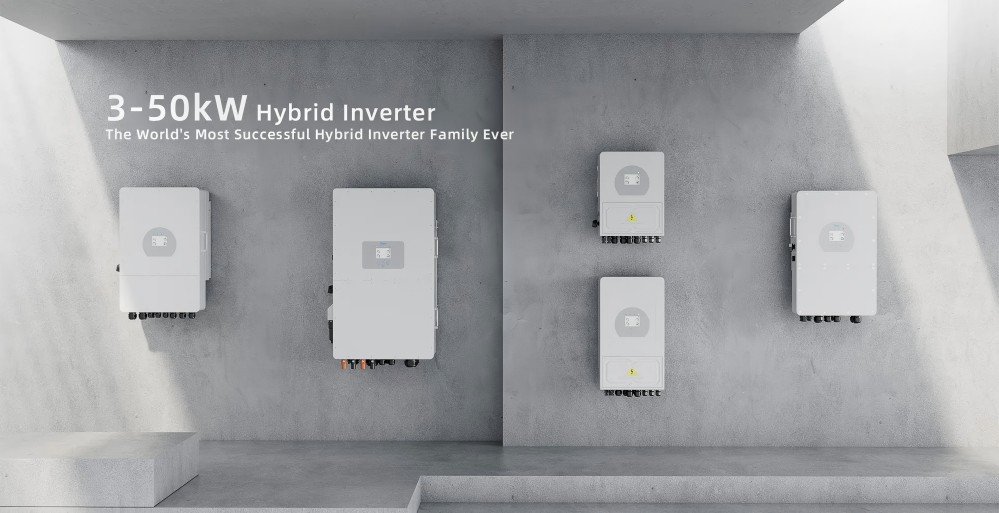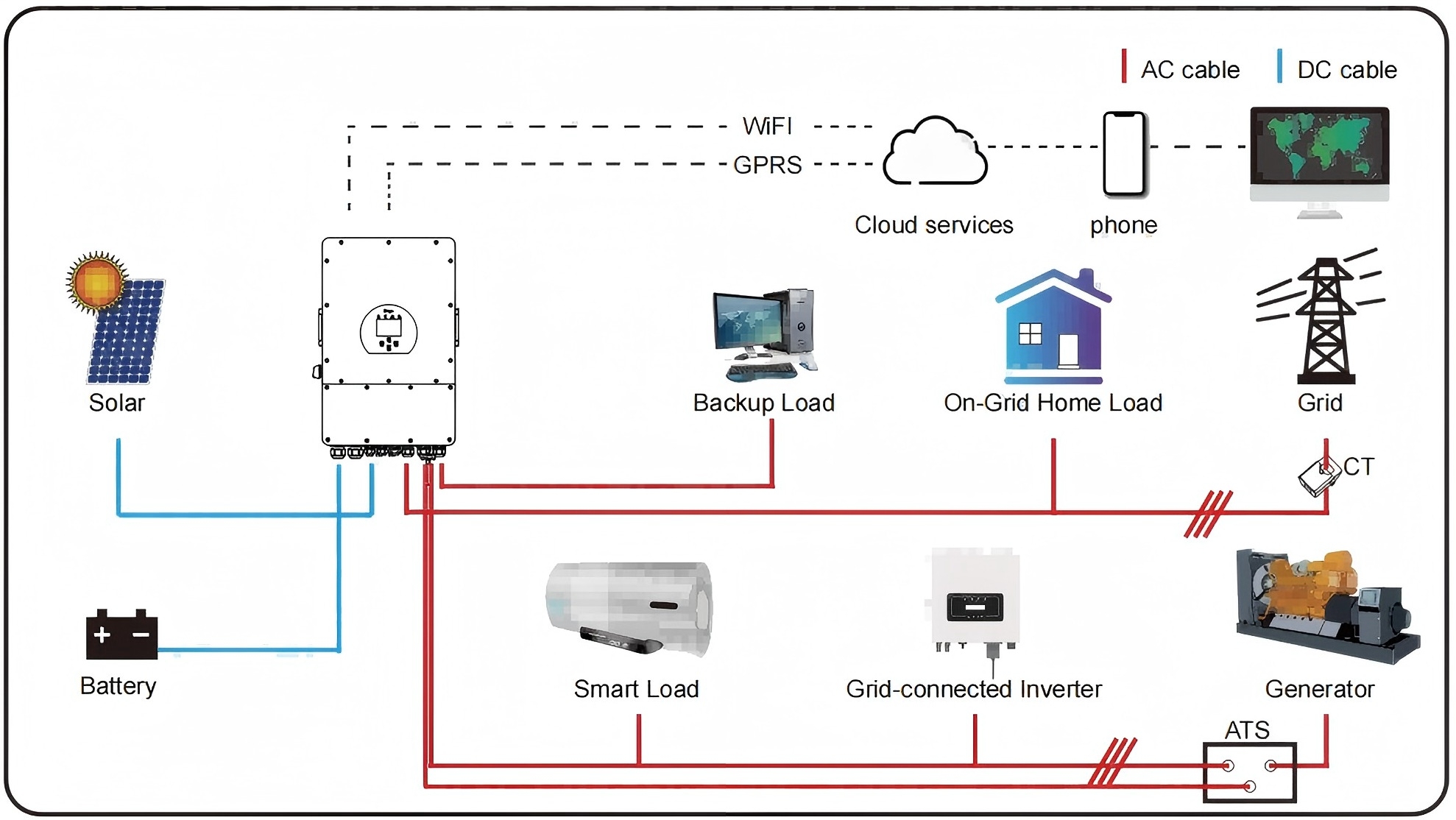Introduction to Hybrid Solar Inverters
Hybrid solar inverters, also known as photovoltaic (PV) storage inverters, are critical components in modern renewable energy systems. They integrate solar power generation with energy storage, enabling seamless energy management for both grid-tied and off-grid applications. This article explores the core functions, technical features, and competitive advantages of hybrid inverters, positioning them as indispensable solutions for sustainable energy ecosystems210.
Core Functions of Hybrid Solar Inverters
Dual Energy Conversion
Hybrid inverters convert DC electricity from solar panels into AC power for immediate use, while simultaneously managing energy flow between batteries and the grid. This dual functionality ensures uninterrupted power supply during outages and maximizes self-consumption of solar energy310.
Energy Storage Integration
By connecting to battery systems (e.g., lithium-ion), hybrid inverters store excess solar energy for later use. This reduces reliance on the grid and enhances energy independence, especially during peak tariff periods or low sunlight conditions510.
Grid Interaction and Backup
These inverters support bidirectional energy flow, allowing users to feed surplus power back to the grid (net metering) or draw energy when needed. Advanced models include anti-islanding protection to ensure safety during grid failures38.
Smart Energy Management
Equipped with Maximum Power Point Tracking (MPPT) technology, hybrid inverters optimize solar panel output under varying weather conditions. Intelligent algorithms prioritize energy usage patterns, balancing loads between appliances, batteries, and the grid1012.
Key Technical Features
High Efficiency and Low Losses
Modern hybrid inverters achieve conversion efficiencies exceeding 97%, thanks to advanced topologies like transformerless designs and silicon carbide (SiC) semiconductors. This minimizes energy losses and reduces operational costs210.
Wide Voltage Range and Scalability
Supporting DC input voltages from 150V to 850V, hybrid inverters accommodate diverse solar panel configurations. Modular designs allow scalable expansion, making them suitable for both residential (1.5kW–20kW) and commercial (up to 100kW) systems1012.
Robust Protection Mechanisms
Built-in safeguards include overvoltage/undervoltage protection, short-circuit prevention, and thermal management systems. IP65-rated outdoor models ensure durability in harsh environments310.
Smart Monitoring and Connectivity
Real-time monitoring via Wi-Fi, Bluetooth, or RS485 interfaces enables remote control and performance analysis. Integration with energy management systems (EMS) supports data-driven optimization211.
Competitive Advantages
Cost Savings and ROI
By maximizing self-consumption and reducing grid dependency, hybrid inverters lower electricity bills. Government incentives for renewable energy further enhance return on investment510.
Grid Stability and Sustainability
These inverters stabilize grid frequency and voltage through reactive power control, contributing to a resilient energy infrastructure. Reduced carbon footprints align with global sustainability goals812.
Future-Proof Technology
Compatibility with emerging technologies like electric vehicle (EV) chargers and smart home systems ensures long-term relevance. Innovations in AI-driven predictive maintenance further enhance reliability1112.
Market Trends and Applications
The global hybrid inverter market is projected to grow by 15% annually, driven by demand in Europe, the U.S., and Australia. Applications span residential rooftops, industrial facilities, and remote off-grid installations, emphasizing the need for "solar + storage" solutions510.
Optimizing Hybrid Inverter Performance
Thermal Management: Optimized designs with heat sinks or liquid cooling prevent efficiency drops due to overheating912.
MPPT Enhancements: Multi-string MPPT configurations improve energy harvest from partially shaded panels1011.
Harmonic Suppression: Advanced filtering techniques reduce total harmonic distortion (THD <3%), ensuring compliance with grid standards1012.
Conclusion
Hybrid solar inverters revolutionize energy systems by merging solar generation, storage, and intelligent grid management. Their high efficiency, scalability, and smart features make them ideal for households and businesses aiming to reduce energy costs and environmental impact. As the renewable energy sector evolves, hybrid inverters will remain pivotal in achieving energy resilience and sustainability.

